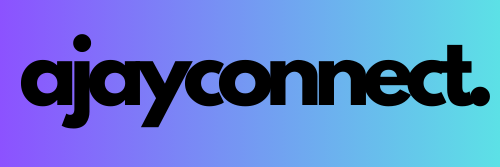In the evolving world of big data, efficient and flexible data lake solutions are crucial for managing large-scale data pipelines. Three popular open-source projects—Apache Iceberg, Apache Hudi, and Databricks Delta Lake—have emerged as leading options for data engineers looking to implement robust data lakehouse solutions. This blog will explore their key features, use cases, and differences to help you choose the right tool for your data architecture.
1. Apache Iceberg
Apache Iceberg is a high-performance table format designed for large-scale analytics on data lakes. Developed originally by Netflix and now widely adopted, Iceberg addresses challenges like schema evolution, partition evolution, and data retention policies, making it a versatile choice for managing complex data structures.
Key Features:
- Schema Evolution: Supports changing table schemas without rewriting data, enabling flexibility in data management.
- Partition Evolution: Allows partitions to evolve over time, improving performance without manual reconfiguration.
- Time Travel: Provides the ability to query historical data states, which is useful for debugging, auditing, and reproducing past analyses.
- Data Retention Policies: Built-in mechanisms to manage data retention, reducing the need for manual cleanup tasks.
- ACID Transactions: Ensures consistency and reliability in data modifications.
- Batch and Stream Processing Support: Optimized for both batch and streaming data ingestion.
Used By:
- Netflix and Apple are among the top companies leveraging Iceberg for their data management needs, showcasing its ability to handle complex data at scale.
2. Apache Hudi
Apache Hudi (Hadoop Upsert Delete and Incremental) is another popular open-source data lake platform designed specifically for incremental data processing. Originally developed by Uber, Hudi excels in managing large-scale data ingestion and updates, making it a perfect fit for real-time analytics.
Key Features:
- Incremental Data Updates: Allows inserts, updates, and deletes on data lakes, making it easy to manage frequently changing data.
- ACID Transactions: Ensures that data operations are reliable and consistent.
- Near Real-Time Processing: Supports low-latency data processing, which is crucial for real-time decision-making.
- Batch and Stream Processing Support: Provides flexibility to handle both historical and real-time data with the same platform.
Used By:
Uber utilizes Apache Hudi to maintain and manage its complex data architecture, particularly for real-time and incremental data processing.
3. Databricks Delta Lake
Databricks Delta Lake is an open-source storage layer that brings reliability and performance to data lakes. Delta Lake combines the best aspects of data lakes and data warehouses to provide robust data management capabilities. It’s especially popular among enterprises looking to integrate data lakes with their machine learning and analytics workflows.
Key Features:
- ACID Transactions: Provides strong transactional guarantees, which help in maintaining consistency across complex data pipelines.
- Schema Evolution: Delta Lake can manage changes in data structure without disrupting existing pipelines.
- Time Travel: Allows users to access and query previous versions of their data.
- Data Versioning: Supports versioned data, making rollback and recovery straightforward.
- Batch and Stream Processing Support: Can handle both streaming and batch workloads seamlessly, providing a unified experience for data ingestion and processing.
Used By:
Databricks is the primary user and promoter of Delta Lake, integrating it deeply into their ecosystem to enhance data engineering and analytics workflows.
Conclusion
Choosing between Apache Iceberg, Apache Hudi, and Databricks Delta Lake depends largely on your specific use case and requirements:
- Choose Apache Iceberg if you need robust schema and partition management with a focus on analytics.
- Choose Apache Hudi if your workload involves frequent updates and near real-time processing needs.
- Choose Databricks Delta Lake if you want a unified data management solution that integrates well with existing data science and machine learning workflows.
Each of these platforms offers unique strengths, making them ideal for different scenarios in modern data engineering. Understanding their features will help you build a more efficient and reliable data lakehouse architecture.
